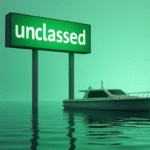Diagnosing the Nation We’ve Created: A Crucial Crossroads
Mexico faces a multitude of interconnected crises, each demanding immediate attention and collective action. These challenges include:
- Education: Over 50% of basic education students struggle to comprehend what they read, indicating a crisis in both pedagogy and culture. The focus on functional literacy rather than nurturing free-thinking individuals has left a significant portion of the population unprepared for self-actualization.
- Healthcare: Public health spending has decreased by 9.2% in real terms between 2019 and 2024, leaving millions without access to essential treatments. The erosion of healthcare institutions has resulted in a deteriorating system, jeopardizing the future well-being of Mexico’s population.
- Security: With over 30,000 homicides in 2023, Mexico has experienced its second-most violent six-year period. The absence of a strong rule of law, as emphasized by Amartya Sen, hinders development and genuine freedom.
- Inequality: 36.3% of the population remains in moderate or extreme poverty, with limited social mobility. Pierre Bourdieu’s concept of structural exclusion highlights the challenges faced by those born into disadvantaged circumstances.
- Economy: Mexico’s annual growth rate has averaged a modest 2.5% for the past three decades, falling short of vibrant economic development.
- Infrastructure and Public Spending: Over 60% of the national budget is allocated to non-negotiable expenses, leaving minimal room for critical social infrastructure investments. Patricia Werhane’s emphasis on systemic ethics underscores the importance of institutional design in addressing these challenges.
- Informality: More than 55% of the economically active population works in the informal sector, a situation that is both unsustainable and detrimental to workers’ rights and fiscal legitimacy.
- Family Businesses: 90% of Mexican companies are family-owned, yet only 30% reach the second generation and less than 10% the third. The lack of professionalization, avoidance of conflict resolution, and unresolved inheritance issues threaten the survival of these enterprises.
- Taxation: Although tax collection has reached historical highs, evasion, simulation, and a lack of accountability hinder meaningful tax reform.
These issues are not coincidental; they are the result of our collective actions. The author calls for a shift in mindset, moving away from an improvised, impulsive national ethos towards one that is deliberate and conscious.
Deep-rooted Causes: The Disconnection from Ourselves
The current state of Mexico reflects our own doing. We have cultivated generations with limited consciousness of alterity, devoid of dialogical activism, and lacking pedagogies centered on care. Furthermore, we have neglected the pursuit of meaning, the joy of sober friendship, and the dignity of duty.
These shortcomings have resulted in a disoriented populace, hollow corporations, and illegitimate institutions.
The New Opportunity: Rebuilding Through Humanism
This crisis also presents an opportunity for reimagining Mexico through alternative logics, questions, and leadership models. One such model is the entrepreneurial approach.
As a family business owner, the author has witnessed how purpose-driven enterprises can become sources of prosperity for numerous families and contribute to social reconstruction. Raj Sisodia calls this “conscious capitalism,” while Riane Eisler describes it as a “culture of association.” Laloux advocates for organizations that not only produce but also care, transform, and heal.
What Mexico requires today is a quiet, profound, ethical entrepreneurial revolution. This movement should begin by acknowledging that businesses are moral agents in the nation’s reconstruction, neither appendages nor adversaries of the state.
Individual Responsibility: Embracing Our Role as Mexico
Drawing from Søren Kierkegaard’s concept of faith as a decision rather than blind leap, the author encourages embracing responsibility for Mexico’s current state. By recognizing that we are not mere spectators but active contributors to our nation’s trajectory, we can initiate meaningful change.
Though we cannot alter Mexico’s history, each of us can transform our relationship with the country. Regardless of whether you are formally or informally employed, a teacher or a homemaker, a hospital worker or a business leader, the author invites you to declare:
I am responsible for what happens in this country. And I will take the following actions to improve it and bring them into practical reality. Engage with your colleagues, form change networks, participate in public affairs, pay taxes, demand transparency, and treat your business with the same dignity as you would a human being. Make a difference.
Towards a Shared, Humanist Rewrite
Mexico requires rewriting, but not through nostalgia or postalgia. Instead, it necessitates creativity, hope, community, and genuine nationalism.
A shared narrative, a grammar of flourishing, and leadership that integrates head, heart, body, and spirit are essential. An entrepreneurial citizenship that understands enterprise as a healing, dignifying, and reconstructive force is crucial.
Mexico has been corrected through on-the-ground efforts. Now, it’s time to correct our daily decisions. With careful planning, implementation, direction, and love, we can rewrite Mexico in a clear, constructive manner.
Today and every day, we have the chance to rewrite ourselves. And this time, let’s do it right.
The new opportunity must be humanist; otherwise, it will fall short of true dignity.
Author Information:
- Doctoral candidate in Human Development, Universidad Motolinía del Pedregal, Mexico
- Master’s degree in Human Development, Universidad Iberoamericana, Mexico
- Executive Master’s degree in Strategic Positive Leadership, Instituto de Empresa, Spain
- Bachelor’s degree in Graphic Communication
Contact Information:
[email protected] | LinkedIn | Instagram | Please help share this content and give it a like. Comment on LinkedIn to build collective knowledge.
#LiderazgoHumanista #DesarrolloHumano #EmpresaHumanista #HumanismoMexicano #Sostenibilidad






